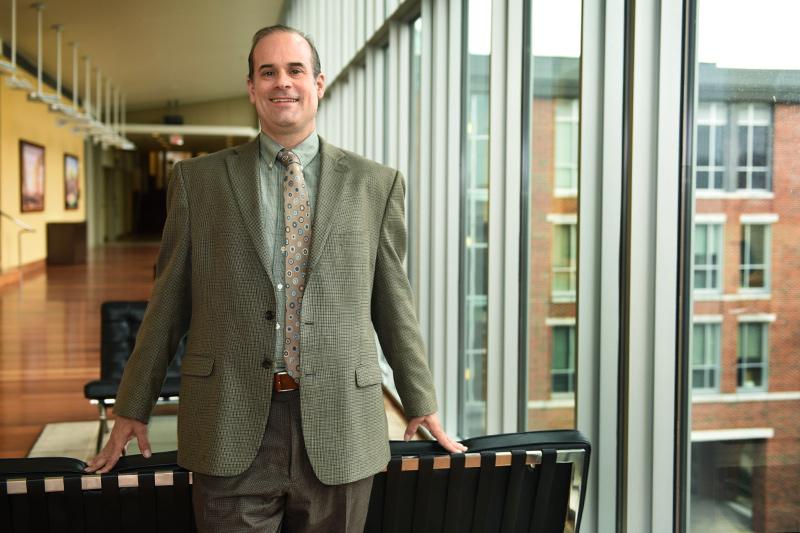Why learning business from the bottom up is best
When Madeleine Bell initially received a position in the competitive Leadership Development Program hosted by Restaurant Brands International (RBI), she had no idea that her first workspace would be a Burger King grill.
As the owner of iconic restaurant chains like Burger King, Tim Hortons and Popeyes Louisiana Kitchen, RBI knows that excellent management stems from the ground up. The multibillion dollar quick-service restaurant business encourages its future leaders to become familiar with how the company operates through its in-restaurant training.
For eight weeks, Bell mastered the Burger King menu, learned how to quickly assemble Whoppers and operated a drive-through and in-store register in English and Spanish.
“We know that a lot of management decisions are not mathematical calculations but rather decisions made on the basis of intuition.”
— Chris McCusker, Colleen and George McCullough Professor of Business
The 2017 A.B. Freeman School of Business graduate, who now works as a marketing communications analyst for Tim Hortons, wrote about her how her hands-on experience taught her teamwork and accountability in an article for LinkedIn called “Why Working in a Burger King Was the Best Move for My Career.”
“I didn’t realize just how much I’d learn from actually working in the restaurant, and how much my team members in that restaurant (some of them 25-year veteran employees) would teach me,” wrote Bell.
Chris McCusker, the Colleen and George McCullough Professor of Business at Tulane, noted that these bottom-up training programs can benefit employees by helping them hone important skills needed for management, like intuition.
“We know that a lot of management decisions are not mathematical calculations, but rather decisions made on the basis of intuition,” said McCusker. “Intuition is the muscle that you develop through experience.”
McCusker said that this type of training also helps participants develop empathy and gives them more credibility as they become company leaders.
Bell’s account also reminded McCusker of an anecdote told by former PepsiCo CEO Roger Enrico.
“Participation is a classic issue in leadership studies. Enrico and I taught a course on leadership together once. He explained that when PepsiCo sold their restaurant businesses — including Pizza Hut, Kentucky Fried Chicken and Taco Bell — he spent months inside the restaurants getting to know them,” he said.
Enrico called it “strip-mining the business” and noted that learning the business by “going to where the cash register rings” is important.
“I think this is a good practice for people to get a feel for the business, which should improve their intuitive judgements down the road,” added McCusker.

